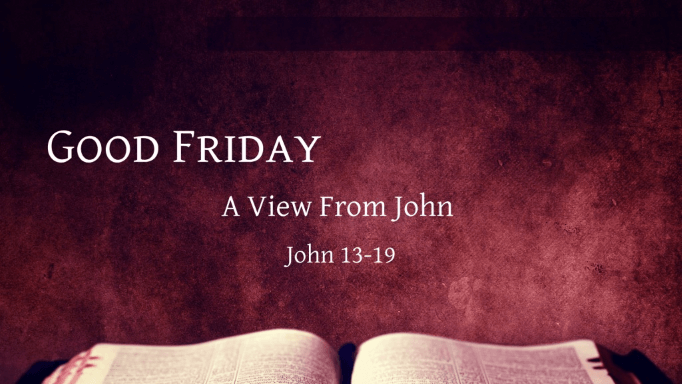Introduction
We are finishing up this series on Discipleship. We have looked at The Call, The Cost, The Cross, The Character, and now we will look at The Control.
Through each of these steps we have learned a little bit more of what Jesus was asking for when He called His disciples. Jesus is our example of the Master Discipler. He took His disciples through the process of discipleship. They walked with Him, and He showed them how to live life on life, life in community, and life on mission. In Matthew 4 we see the beginnings of this journey. It holds the first bookend, while Matthew 28 holds the closing bookend. Discipleship happens all in between and beyond.
Matthew 4:19 (CSB)
19 “Follow me,” he told them, “and I will make you fish for people.”
What was the disciple’s response? They responded immediately. They dropped their nets and began to follow Him. They were all in. How about you?
The Process of Discipleship
We know that Jesus took His disciples on a three-year journey. Through that season He taught them how to minister to the needs of the hungry, the hurting, and those in need of healing. Each interaction starts in a relationship, then the identification of a need, moving into declaring the gospel that meets it, and finally to the work of the Holy Spirit. I’m glad I stated that. Each interaction should actually start first with listening to the Holy Spirit.
Relationships Revolve Around Spaces, Stages, and Steps
This call to be a disciple revolves around relationships. In January this year, we took a look at what it would mean to be Frontline Warriors. There were three areas that are important for discipleship. Where you are, who you are, and what you do.
Spaces of Relationship – The Where
Just as God set up spaces to fill with His creation (Genesis 1), He has set up spaces for us to occupy. Some would call it our sphere of activity. These are the spaces where we live, work and recreate.
From a view of the family of God we could categorize these by Cs – Crowd, Congregation, Community, and Core
Crowd – The larger group of people in your sphere. Employees at your workplace, neighbors in your town, people that you are in close proximity to as you live out your life.
Congregation – This is your church family. Depending on church size you may know everyone OR not. This is more of a surface level of knowledge. You have chosen to be in the same group, but you may not interact with everyone.
Community – This is a smaller group that you interact with. This is usually a subset of your church but could incorporate people from other groups as well.
Core – This is the most trusted group. These are the people that you let get closer to you than the other groupings. This is where accountability can thrive, support can be given and felt, and growth can occur as “iron sharpens iron”. This is the group that calls at 2 AM and you take the call because you are committed to each other.
Stages of Maturity – The Who
While spaces are where you interact with others, stages give us a structure of our maturing process. These can be captured by 4 chairs.
- Chair 1 – The Unbeliever
- Chair 2 – The New Believer
- Chair 3 – The Worker
- Chair 4 – The Disciple Maker

Steps of Ministry – The What
We have seen the where and the who, now comes the what. These I’ve categorized into 4 Ls – Love, Liberate, Lead and Launch. They are connected to the Where and How. But they are about the actions we take with others.
Love – Live it out. – This action encompasses our entire sphere. We are to live out the love of God for His humanity. Those that He created in His image, a.k.a. people.
Liberate – Invite them in. – As we love people, some are open to our message and so we share who Jesus is. These are People of Peace. We share the gospel and what He has done for us (our testimony). Liberation comes when people move from unbelief to belief. It can happen in all the stages as we allow the Holy Spirit to transform us.
Lead – Disciple – This is an action that involves trust, accountability, and support. This can start to happen in all the spaces but will accelerate most in the Core group. Coming into a discipling relationship we decide we are all in. If you didn’t know, Jesus requires it.
Launch – Send – This action sends out the dependable and mature to multiply (2 Timothy 2:2).
The Authority
Jesus passed His first test to move into ministry through the wilderness. There He was tempted for 40 days and came out victorious. As was His custom He went to the synagogue on the Sabbath…
Luke 4:17–21 (CSB)
17 The scroll of the prophet Isaiah was given to him, and unrolling the scroll, he found the place where it was written:
18 The Spirit of the Lord is on me,
because he has anointed me
to preach good news to the poor.
He has sent me
to proclaim release to the captives
and recovery of sight to the blind,
to set free the oppressed,
19 to proclaim the year of the Lord’s favor.,20 He then rolled up the scroll, gave it back to the attendant, and sat down. And the eyes of everyone in the synagogue were fixed on him. 21 He began by saying to them, “Today as you listen, this Scripture has been fulfilled.”
Jesus was anointed for ministry. He called disciples to follow Him.
In Mark the first chapter you will see what He was anointed for. “Repent for the kingdom of God has come near. Believe the good news.” He then drives out unclean spirits and heals the sick.
Jesus walked and taught with an authority that had not been seen before. People were amazed. The disciples were walking with Him watching all that He was doing. And then there was a change.
Matthew 10:1 (CSB)
COMMISSIONING THE TWELVE
10 Summoning his twelve disciples, he gave them authority over unclean spirits, to drive them out and to heal every disease and sickness.,
Jesus switches it up and gives His disciples authority to do the same things He has been doing.
Mark 6:7 (CSB)
COMMISSIONING THE TWELVE
7 He summoned the Twelve and began to send them out in pairs and gave them authority over unclean spirits.
Mark 6:12–13 (CSB)
12 So they went out and preached that people should repent. 13 They drove out many demons, anointed many sick people with oil and healed them.
What did they do with that authority? They went out in pairs and began to do the same things that they had seen Jesus do.
Do you think Jesus just wants you to sit back and watch others minister? Does He want you to watch, learn, and do ministry?
This was the cry of the disciples. They had watched and seen the miracles. Some were only around to be fed, but others hungered to be used by God. “What must we do to work the works of God?” Jesus tells them:
John 6:27–29 (CSB)
27 Don’t work for the food that perishes but for the food that lasts for eternal life, which the Son of Man will give you, because God the Father has set his seal of approval on him.”
28 “What can we do to perform the works of God?” they asked.
29 Jesus replied, “This is the work of God—that you believe in the one he has sent.”
We believe first. We become convinced of who He is. And then He brings us into an experience where we must trust in Him. We then know Him more.
Before God uses you, He will bring you into an experience.
It was after this that the Lord sent the 72 out like the 12. They had the same powerful results.
Luke 10:1–3,9, 17 (CSB)
SENDING OUT THE SEVENTY-TWO
10 After this, the Lord appointed seventy-two others, and he sent them ahead of him in pairs to every town and place where he himself was about to go. 2 He told them, “The harvest is abundant, but the workers are few. Therefore, pray to the Lord of the harvest to send out workers into his harvest. 3 Now go; I’m sending you out like lambs among wolves… 9 Heal the sick who are there, and tell them, ‘The kingdom of God has come near you.’… 17 The seventy-two, returned with joy, saying, “Lord, even the demons submit to us in your name.”
As we step out into ministry, the same authority that Jesus gave the 12 and the 72. Is the same authority He sends us out in.
The Objective
The objective remains the same. Make disciples.
Telling others, the good news, “You can have peace with God and the peace of God in your life and circumstances.” It all revolves around their relationship to Jesus. With that message comes the question, “Will you follow Him?”
Power doesn’t come through words; Power comes through relationship.
We have been baptized into a family of servant missionaries. As Jesus was ascending into heaven, He left the command to go and make disciples.
Matthew 28:18–20 (CSB)
18 Jesus came near and said to them, “All authority has been given to me in heaven and on earth. 19 Go, therefore, and make disciples of all nations, baptizing them in the name of the Father and of the Son and of the Holy Spirit, 20 teaching them to observe everything I have commanded you. And remember, I am with you always, to the end of the age.”
So as we come to a close, here are a few questions for you to answer.
- What did Jesus tell His discipleship group before He left?
- What are we to teach the people we are discipling? Teach Them Resource
- What is the difference between teaching facts and teaching someone to obey God’s commands?
- What did Jesus promise to those who attempt to make disciples?
Marks of a Disciple
The following questions will help you evaluate where you are in your journey as a disciple.
- Are you being discipled?
- Are you discipling someone?
- Are you sharing the gospel?



